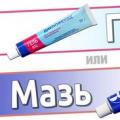Learn World of Warcraft Orcish? Easy! How to learn other languages in wow
What are the specifics of creating a language for games and films
© genrou0.deviantart.com
2 out of 5© genrou0.deviantart.com
3 out of 5© genrou0.deviantart.com
4 out of 5© genrou0.deviantart.com
5 out of 5The languages of non-existent peoples create the appropriate environment and allow you to dive deeper into the fantasy world. The specifics of the language, its sound help to reveal the character of the characters.
As a rule, living conditions do not particularly affect either the sound composition or the grammar of the language. Very often you can find cases when speakers of completely different languages are adjacent to each other. For example, Basques live in the Western Pyrenees, whose speech is absolutely different from the languages of their neighbors living in the Eastern Pyrenees. At the same time, purely typologically, it has in common with the Caucasian languages, which, by the way, in turn, are typologically similar to some of the languages of the Indians.
But the appearance of the characters affects the speech. So, when creating a new language, it is always worth considering what is inside the characters. And by the way, there are certain inconsistencies in Warcraft. In the speech of the orcs, there are often back vowels (A, O, U), and there are practically no front vowels (I, E). What does this indicate? The orcs have a short tongue in their mouths. But what is the discrepancy? Orcs have fangs that, in theory, should have stopped them from stretching their lips. With such a jaw structure, these comrades would rather have problems pronouncing O and W. With trolls, by the way, the same strange story.
Creators of the "Warcraft" languages clearly used stereotypes Congratulations! You found the promo code: 863 Send it in the comments to the post and in the private messages of the community. Be the very first to send this code and get a ticket to Wargaming Fest. about what a beautiful and ugly language is, and from the point of view of Europeans. It seems that they cared more about the spelling of the words than the sound. So, the spelling of Orcish words looks as ugly as possible for the average European. Letters were pushed into this language, which are infrequent in the standard of beauty for Europeans - Latin: K, Z. But in sounding their language is not much different from standard English. And for human names in Warcraft, the traditionally Latin and Greek endings "oc", "ac" or "uc" were used, which immediately add solemnity (Artos, Terenos, etc.).
There is only fragmentary information about the Warcraft languages and a very small dictionary - just a list of words and phrases with translation. Blizzard probably didn't hire linguists to develop vocabulary and grammar. But you can try to evaluate languages by the available grains.
Orcish

Examples:
AkaʼMagosh. = May the spirits be with you.
Bean could gʼtazag cha! = I will protect you!
Loktar ogar! = Victory or death!
This language is known to be rough and guttural and lacks subtlety. But it seems that such data have come down to us from ardent orkon-haters. The sounds that are formed precisely in the larynx include, strictly speaking, the English H, the Ukrainian G and the glottal stop, which we can only pronounce in the word "No-a" (Russian).
At the same time, the guttural sound H, most obvious to native speakers of English, is rarely found in Orcish words. But in their speech, you can often find a glottal stop, which, apparently, is denoted by an apostrophe. But have mercy, in Darnassian (elven. - Approx. ed.) the words of these bows are no less. So it's still a question of who is more guttural - elves or orcs.
Meanwhile, there is some truth in the official description of Orcish: this language really has a special phonetics.
Orcs prefer closed syllables (which end in a consonant). So the name Badrak Scoop is normal for an orc, but Mimimi will not work. Such languages also exist in our world. For example, classical Tibetan. Other features of the Orcish are also found on our land: the dependence of the meaning of the word on the context is characteristic of the Chinese text, and repetitions are used even in Russian: honestly.
Draenei

Example:
Kehla men samir, solai lamaa kahl - a spell that was used to dispel the spell of invisibility
Interesting in the Draenei word manʼari. Once upon a time in this language it meant "gifted", and today it means something completely disgusting. A similar story happened with the Sanskrit word darika. In ancient times it meant "great, noble." But then the word began to mean simply "big", then "absurdly large", and then the meaning changed to the opposite - "Rude, vulgar"  Hey! Bad luck - there is no promo code here. Look further, they are definitely still in other materials!... Perhaps this happened due to the fact that this word is rare and few people know it. Ordinarily, it would simply disappear from the language. But Sanskrit has a rich written tradition, which means that this word has been preserved in books, in which new generations of readers noticed it. They rarely met this word, in the end they could understand it a little bit wrong and then convey this understanding further. Perhaps the same thing happened with the draenei manʼari. So it makes sense to assume that they have a long literary tradition.
Hey! Bad luck - there is no promo code here. Look further, they are definitely still in other materials!... Perhaps this happened due to the fact that this word is rare and few people know it. Ordinarily, it would simply disappear from the language. But Sanskrit has a rich written tradition, which means that this word has been preserved in books, in which new generations of readers noticed it. They rarely met this word, in the end they could understand it a little bit wrong and then convey this understanding further. Perhaps the same thing happened with the draenei manʼari. So it makes sense to assume that they have a long literary tradition.
And this is not surprising. Draenei closely resembles the elven Tolkien. Obviously, the creators of this language used the work of the father of "The Lord of the Rings". For example, melorn (a kind of tree - translated from Elvish) in the word Felo ’melorn (“ ancient runeblade ”in translation from Draenei). The names of the heroes ending in "-el" (Mariel or Vidriel) are also references to Tolkien. He has this standard format for elvish names.
Draenei also vaguely resembles modern Finnish, which has many open syllables, and Irish, which has many vowels. Look, for example, at the phrase “Selama ashalkanore” (“Justice for our people”). But these are also echoes of Tolkien - one of his first Elvish languages, as far as I remember, he created based on Finnish, and the following ones - on the basis of Irish.
General language is the language of communication of the members of the Alliance. All races of the alliance must understand the common language. Orcish is similar in importance to the Horde.

Common language - in Latin letters
In the historical records of Warcraft, almost all sentient beings spoke a common language, and this may mean that the universal language is not human. Common is known to many races, and is used as a universal language by most of the inhabitants of Azeroth and Draenor. And while not all races of Azeroth speak the common language, they at least understand some dialects of the common language. Some of the Gnolls speak the so-called broken commons. Dialects and languages similar to the common one are spoken by dozens of races of Azeroth.
Due to the fact that the universal is a universal language, it was known by many creatures who have never had contact with other races can often communicate with each other at their first meeting. Other racial languages (Orcish, Taur-AEH, gnomes, etc.) tend to be limited to their specific race, but frequent mixing of races means that the native language is not used as often.
The modern "Common" consists of a fraction of the words in English, mingled with the words of the ancient language (actually Welsh, Latin and other historical languages). For example, half-ogre is a general term for a race that is a mixture of Ogres and Orcs, while mok "nathal is an Orc term for the same race. At least two known dialects of Common exist, a modern dialect which is more The degree relies on English, and the "ancient language" from which the modern Common is derived.

Common language - alternative letters
Alphabet
There are two types of common language notation. Elder futhark the runic alphabet used by the North Germanic tribes, and the Alternative alphabet of unknown origin (you can see an example of such a record in the picture).
Common phrases (official translation)
The word Trol "kalar, written in the Elder Futhark alphabet
Azeroth= the word comes from the name of the ancient human ancestors Azotha.
Caer= means castle, fortress, or citadel from the Welsh word Kaer (used in many places in Welsh).
Daer= "peoples".
Deo gratias= "Thank you, be happy", from the anthem sung in church in Warcraft II. (Latin roots)
Dwarf= "Dwarf / small"
Esarus thar no "Darador= "We serve with blood and honor" (Valley of Heroes)
Half-ogre= (half-ogres) = races that are born from a mixture of ogres and orcs
Rain dance= a general term for a festival in the Darkshore (the elves have a different name for it)
Trol "kalar= "Trelle the Assassin" in an ancient language, an ancient dialect of the Commonwealth often used in the Aratorian Empire.
Untranslated words or phrases

General text in Warcraft 2 (Cyrillic).
Alterac Is a former human nation in central Lordaeron.
Arathor Is a former human nation in the southeast of Lordaeron.
Arevass- a river in Silver Forest.
Andorhal- the former city of the people of the Western Plaguelands.
Azotha- The name of the primitive race of people from which the current one came.
Balor Is a former colony on the island of the Kingdom of Azeroth.
Caer darrow- a former city of people on the island of Darrowmere.
Dalaran- Human state and city of the same name.
Durnholde- A human fortress in the foothills of Hillsbrad.
Elwynn- A forested region that encompasses the central part of the kingdom of Stormwind.
Gilneas- The land of the people in the southwest of Lordaeron.
Kirin tor- An organization of people, based in Dalaran, is aimed at fighting demons.
Kul tiras- The island nation of the people at sea south of Lordaeron.
Mardenholde- Fortress of Hartglen in the Western Plaguelands.
Mereldar- A lake in the Eastern Plaguelands.
Stratholme Is the former human city of Eastern Plaguelands.
Strom- The capital of Arathor where Stromgarde still exists today.
Stromgarde- The city of people in Arathi.
Theramore- The city of people in the Dust Bog.
Tiragarde- The fortress of the deposits.
Tol barad Is a formerly inhabited island south of Lordaeron.
Chant- says the Tower of Mages in Warcraft II.
World of Warcraft is a huge universe that spans several entertainment areas at once: video games, books, comics, films, board and card games, and much more. This is a fictional fantasy world that functions according to its own rules and orders and which is inhabited by the most amazing creatures. Orcs are some of the most important inhabitants of WoW. They have a rich history and very interesting lore behind them. Moreover, Orcs, as representatives of the Horde (one of the two in-game political factions), have their own unique language.
Orcish WoW
Orcish WoW (also known as Orcish) is the Orcish language of the Warcraft universe, which is also spoken by the rest of the Horde. The speech itself sounds rather rude and guttural, and the speakers rely on contextual meaning, frequent repetition and loudness in order to highlight one or another significant word. Orcish language is divided into two dialects: the main one, which is inherent in almost all orcs, and a special one, which is spoken only by the inhabitants of a particular region. The main dialect is known as the Common Orcish language.
Words and expressions

Below we have compiled a list of words and phrases that can be found while listening to Orcish speech:
- Aka "Magosh - may the spirits be with you!"
- Es - hey!
- Bin mok to "tazag cha - you are under my protection.
- Dabu - I obey.
- De mon is a perverted soul.
- Draenozh is a Draenor heart.
- Gar "magician - torment.
- Grombalar - Giant's entrails (abusive expression).
- Gromash is a giant heart.
- Kagh! - get away with your feet!
- Tug varnish - acceptance of defeat.
- Col "Gosh - my ax.
- Lo "Ghosh is a ghost wolf.
- Log-Narash - prepare for battle.
- Log-Regar - ready to fulfill the order.
- Log "tar! - victory!" (A cry during a battle means a greeting on the battlefield).
- Lok "tar ogar - win or die (call during the battle).
- Log "Amon is a song of the orcs, traditionally celebrating the formation of the family.
- Log "tra is a song of the orcs, traditionally praising fighting spirit.
- The log "vadnod" is a song of the orcs, traditionally celebrating the life of a hero.
- Mac "har is undefiled.
- Mog "natal - sons of Nat (title of honor).
- Nakrand is a land ruled by the wind.
- Oshu "gun is a mountain where the spirits of the dead dwell.
- Freedom - at your direction.
- Lon "goron - the hero's station.
- Trom-Ga - glad to see you (greeting).
- Zag-zag - agreement with something; a word close in meaning to "good".
- Kek is an expression of intense fun.
Orcish names

Orcish names and names are formed by modifying pre-existing words. Surnames are absent, however, orcs who distinguished themselves in battle can receive a middle name for their merits. Nicknames have also become widespread, which can supplant the real name. Nicknames are given during the initiation rite - the entry of a young orc into adulthood.
List of place names and events named after outstanding fighters (unmovable):
- Horus "gas - orc camp.
- Grangol "var is a village in the Dark Forest where the Dark Council sits.
- Thunder "gol is an orc camp located on the side of Stranglethorn Vale.
- Kor "kron" is an elite guard.
- Kosh "kharg is the name of a local holiday.
- Poppy "mountain - challenge to a duel.
- Om "riggor is an orcish initiation rite.
- Valormok is a Horde camp outside Azshara.
- Zet Chickens is an orc fort lost in battle.
As you can see, learning the Orcish language is actually not very difficult. It is enough to be patient and memorize the basic phrases.
 How to write interesting about yourself?
How to write interesting about yourself? How to open an LLC: step by step instructions
How to open an LLC: step by step instructions Contraindications and instructions for use diclofenac ointment Diclofenac ointment 1% instructions for use
Contraindications and instructions for use diclofenac ointment Diclofenac ointment 1% instructions for use